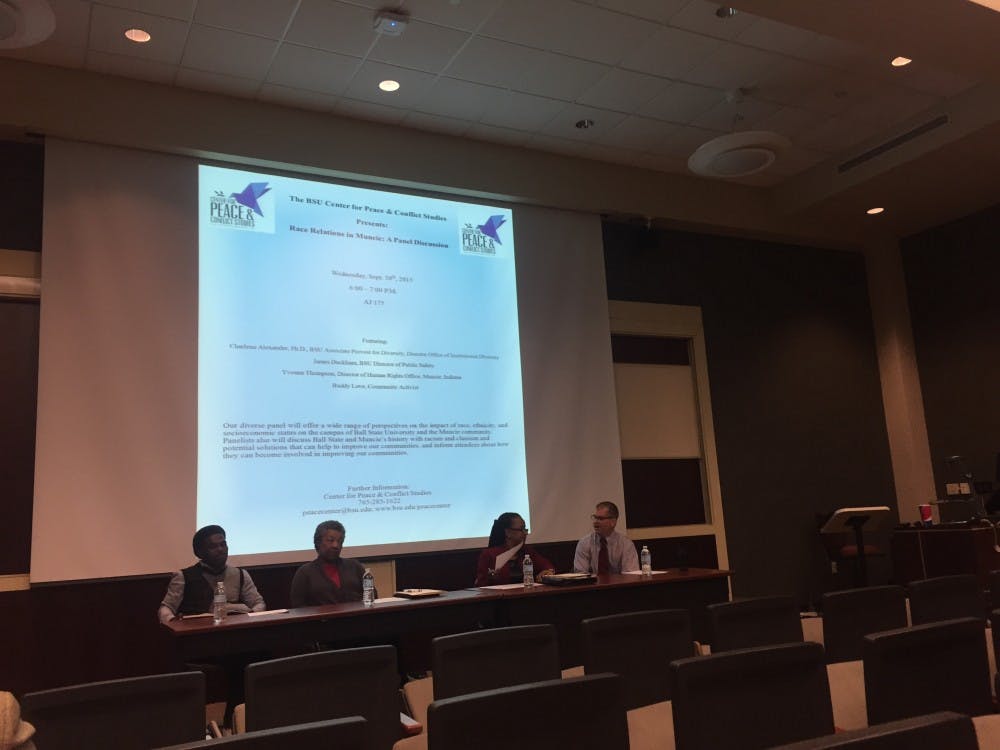In an attempt to pop the Ball State bubble and alert students of the necessity to get involved in different parts of Muncie, Mac McKinney organized a panel on race relations in Muncie.
“Race diversity has never been more prevalent than it is right now,” McKinney said. “Especially in a community that is so closely tied to a university like Ball State, we want to start conversations that bring more awareness and attention to diversity.”
Center for Peace and Conflict Studies hosted the panel on Sept. 30, and it included people from the Muncie community and Ball State who are passionate about diversity, including Charlene Alexander, associate provost for diversity and director at the Office of Institutional Diversity; Jim Duckham, chief of the University Police Department; Yvonne Thompson, director of the Human Rights Office in Muncie; and Buddy Love, a community activist for racial diversity and education.
The panel offered a range of perspectives on the impact of race, ethnicity and socioeconomic status on the Ball State campus and within the city of Muncie. Thompson started the discussion, which she began by focusing on recent race relations in the community.
“When we compare Muncie to other cities, I think there are better relations and communications here than on other places, but that doesn’t mean we don’t need to improve,” Thompson said. “We don’t want to see anyone feel uncomfortable or ignored, and that’s what we should be focusing on as a community.”
When discussing community initiatives and outreach, Duckham echoed Thompson’s goals.
“[University police] are taking on a ‘lead by example’ approach, especially for our students at this institution,” Duckham said. “I want cops out of the cars. Police work is being in the community, and that presence is a step we’re taking to be connected and be a positive part of people’s lives.”
Duckham also said building relationships with students on the campus will help students trust law enforcement and be more aware of race-related concerns in the community.
“We encourage our officers to get to know people that are different from them,” Duckham said. “We want to get involved with students and organizations."
An activist for getting Ball State students involved in community outreach, Love touched upon the lack of student commitment to areas outside of the campus.
“This isn’t Chicago. You’re not in Detroit. You’re in Muncie,” Love said. “We’re fortunate to have a community that is growing, but we need to see more Ball State students going into different parts of the city and getting to know people and getting involved.”
Alexander was quick to bring the focus to higher education standards as well. The university no longer requires a diversity emphasis in the core curriculum, and Alexander said that this should not be the case.
“It’s time to put diversity back in the curriculum,” Alexander said. “I don’t know why it was ever dropped, but everyone, including students at this institution, needs a taste of diversity in their classes. That’s just one step students can take to achieve a better respect and understanding for today’s race relations.”





